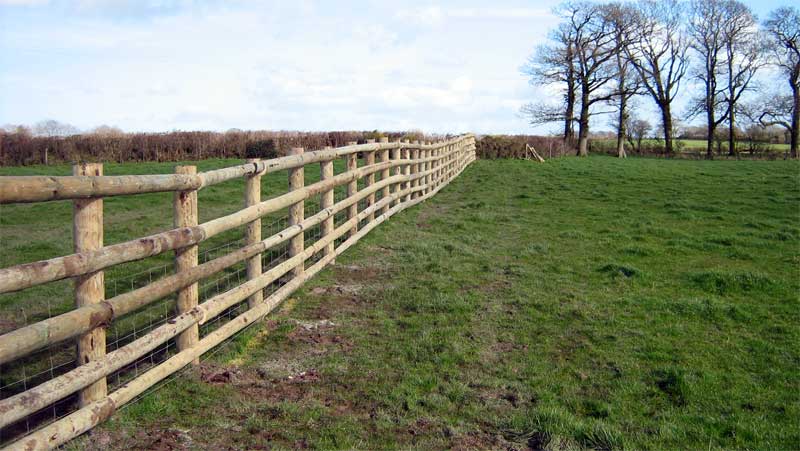Farm fencing is extremely important for those who have livestock, or just want to protect their farm from intruders and wild animals. When it comes to farms with livestock, farm fencing is probably the most important part of your farm's infrastructure.

The benefits include protecting your animals from hunters and predators, separating livestock, easing livestock moving, pasture management, and many more things. If you are looking into farm fencing and farm gates you'll have several types to choose from. Let's take a look at the different kinds available, so that you can make your best choice.
Different Types of Farm Fencing
1. Electric Fencing
Electric fences can be expensive, and are also not ideal for large areas of coverage. They are also not very effective if you have heavily woollen livestock like sheep. They can be very effective in smaller fencing however, for making temporary paddocks and to help with livestock movements on the farm. While it may not be the choice for your bigger fence, it may be a good additional fence.
2. Barbed Wire Fencing
Barbed wire fences are pretty good at keeping bigger predators off your farm, and animals like cows and horses on your farm. They won’t work too well for smaller nuisance animals like rats and feral cats. They can also be a pain if your livestock include animals with wool. It is an excellent choice as a supplemental farm fence.
3. Rail Fencing
Rail fences are the most aesthetically pleasing of all farm fencing, but also arguably the least useful. Beautiful wood plank, and whitewashed rail fencing can really make your farm look good. Many paintings of farms often show a rail fence on the property to make the artwork pleasing to the viewer. In practical use however, rail fencing doesn’t have too many uses. It won’t keep any predators out, and the spacing between the rails usually lead to younger livestock escaping off the farm.
4. High Tensile Wire Fencing
These fences are very strong, and generally inexpensive. They do a great job at keeping most livestock in, except for small newborn animals that may escape between the strands. They are not great at keeping predators out either. If your area doesn’t have many predators, it may be a great choice however.
5. Woven Wire Fencing
These fences are ideal for most farming situations. They are very strong, and also pretty simple to install compared to other farm fencing. They do a great job at keeping almost all predators out, besides some bears and cougars.

Now that you know about some of the farm fencing available, make sure you decide which one will best suit your needs. Sometimes you will want to use a variety of different fencing for multiple needs, along with plenty of farm gates for your larger fences. Deciding on a good farm fence will be extremely important so make sure you think over your plans thoroughly. I would also love to hear about the different types of farm fencing you readers may be using. So please let us know in the comments section below.
Joey West has been helping farmers design and maintain farm fencing and farm gates for years, and when not offering help to farmers in person, he can often be found offering tips online to those in the farming business.





No comments:
Post a Comment